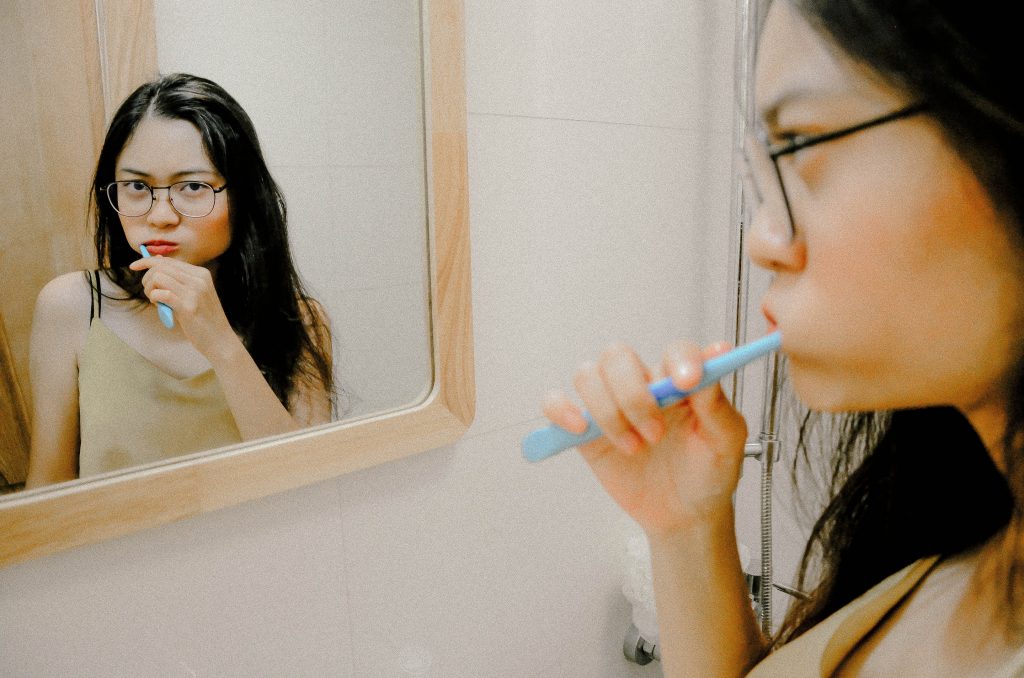From the very beginning, you want your children to develop the habits of proper hygiene. When they are infants, you will handle this task, making sure they are bathed regularly. As teeth come in, you will do the brushing to help establish this as a normal practice. As kids get older, they become responsible for taking care of their own bodies, especially as they go off to school where you cannot monitor their every move. If you’re looking for a good dentist for your kids, check out the professional dental clinic in Marlborough.

Consequences of Poor Hygiene
In children, poor hygiene can have both physical and social consequences. Kids who do not take care of themselves may find it difficult to make friends easily. Poor hygiene can lead to body odor, greasy hair and bad breath. It will be difficult for other children to ignore these conditions. Some more mean-spirited children may use them as a way to mock or bully the affected child. This can lead to even more social isolation, absences from school and falling behind in class.
The physical consequences of poor hygiene are also troubling. A child who does not wash his or her hands in the bathroom or before eating is more likely to pick up a virus. Children are also more likely to pick up things like worms when they don’t wash their hands properly, but beyond that, children need to clean underneath their nails, too. When bacteria builds up beneath the nail beds, you could end up taking them for laser nail fungus treatment and that isn’t always what children will tolerate! Nail brushes should be available next to the sink so that when they brush their teeth and wash their hands, they will be encouraged to brush under their nails. Children don’t actually mean to be germ-bags, but they attract every single germ going and this then spreads in the home. The consequences of germs under the nails and all over the hands can lead to spreading other viruses and bugs, and you can avoid this with such a simple thing as practicing hand washing. With good hand hygiene, children can avoid a lot of bugs and issues. A child who does not bathe regularly can develop skin conditions or bacterial infections. A few simple habits can make a big difference in the health and well-being of your children.
Start with a Clean Space
Children will have a better chance of maintaining good hygiene habits if the space around them is clean. Make sure that the bathroom is sanitary and well-organized, making it easy for kids to find all they need to complete their routine. Kids will spend eight hours in bed each night. Wash bedding regularly so clean bodies stay clean. If there is a problem with bed bugs, bed bug services Boise can help you take care of it quickly. A safe and clean bed will provide the restful sleep that is such an important part of self-care.
Handwashing Basics for Kids
Basic hygiene practices get rid of nasty bacteria and viruses. Every child should know the proper way to wash his or her hands and the right times to do so.
Children should wash their hands…
- Before handling food
- After using the restroom
- When hands are visibly dirty
- After touching an animal
Proper handwashing with soap and water should take some time. There should be at least 30 seconds of scrubbing once the soap becomes a lather. Teaching children to slowly sing the ABC song as they scrub can help them with the timing. If a sink is not nearby, children can use hand sanitizing gel as a substitute.
Bathing Essentials
Children should shower or take a bath with soap at least every other day and after becoming sweaty. This not only prevents body odor, but also removes bacteria, dirt and oil. They should wash their hair about twice a week, which removes excess oil and keeps the scalp healthy.

Dental Hygiene
Good dental hygiene not only prevents bad breath, but also helps maintain a winning smile. Importantly, it also prevents plaque build-up and tooth decay. Children should learn to brush their teeth twice a day for two minutes. They also should floss between teeth every day. Learning to use an antibacterial mouthwash properly is also an important skill.
Of course, even a thorough at-home routine needs to be supported by the care and attention that a dentist can provide. Make sure that you’ve got your kid making routine appointments for the dentist for both checkups as well as regular cleanings. They might not need to see them more than a couple of times a year, but it’s essential they make those appointments.
The best way to teach your children these behaviors is to model them yourself. When you make a point of washing your hands and brushing your teeth, your children will see that these are important practices. You want hygiene to become a habit for your child, something that is done automatically. Establishing these good habits will keep them healthy as they grow.
















Add Your Comment